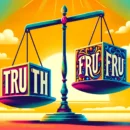Is envy the key driver of consumer behaviour?
“Since the dawn of time, man’s demand for products and services has been driven by a deep desire to keep up with the Joneses.
This desire has made mankind crave certain products and services, and despise others – no matter what the intrinsic value of those products and services.
If you want to build a strong, attractive brand in your marketplace, this should be your starting point.
Superior product performance and service delivery all help.
But all you really need is envy.”
All You Need is Envy, Young & Rubicam Brands
I came across this booklet produced by the folks at Y&R Brands recently, and it made me stop and think. Is envy really the emotion that drives so much consumer behaviour in the market place? Can that really be right? Are we that small as a species, that we are so affected by jealousy? Do we really buy because we covet what others have? Isn’t envy a sin?
We’d all like to think we’re bigger than that. But consider the following uncomfortable facts. Why is it that in America, average incomes have tripled in real terms over the past fifty years, but surveys show that the average American is no happier as a result? Could it be that people only get happier when material uplift is relative – ie that they become better off than others?
Consider a situation in which people are offered two options: (a) An income of USD 100,000, but their peers get USD 200,000; or (b) An income of USD 50,000 but their peers get USD 25,000. Surveys repeatedly show that most people would take option (b), even though that gives them just half the income they could have had. It seems to be more important to have more than others have, rather than just more!
Why do people covet high-end cars, and pay Shs 15 million for them? Is it really because of the build quality, engine power, styling, comfort – when all of that would be equally available from a car that cost a third as much? Or is it the silent thrill that comes from having something that most others can only dream about?
Certainly, when things become commonplace that thrill disappears. As the Y&R people point out in the booklet, if everyone could afford a Mercedes SLK, its current customers would desert it. If everyone could go to the Harvard Business School, who would want to go to the Harvard Business School? If everyone could afford to eat at the Mandhari, who would be dining there?
These are all examples of ‘positional’ goods – those whose value in the mind of the consumer depends on who has it and who doesn’t. Thinking in positional terms can change your entire thinking about how you brand your product or service. For example, who do you want NOT to buy your product? Is your product highly visible in envy terms – can it be seen and coveted by those who can’t buy it? That may boost its value considerably! Should you be charging more, rather than less, to build envy? Is it product features that matter, or just desirability?
So ask yourself: how many of your purchase decisions (or hopes) are about envy?

Buy Sunny Bindra's book
UP & AHEAD
here »











